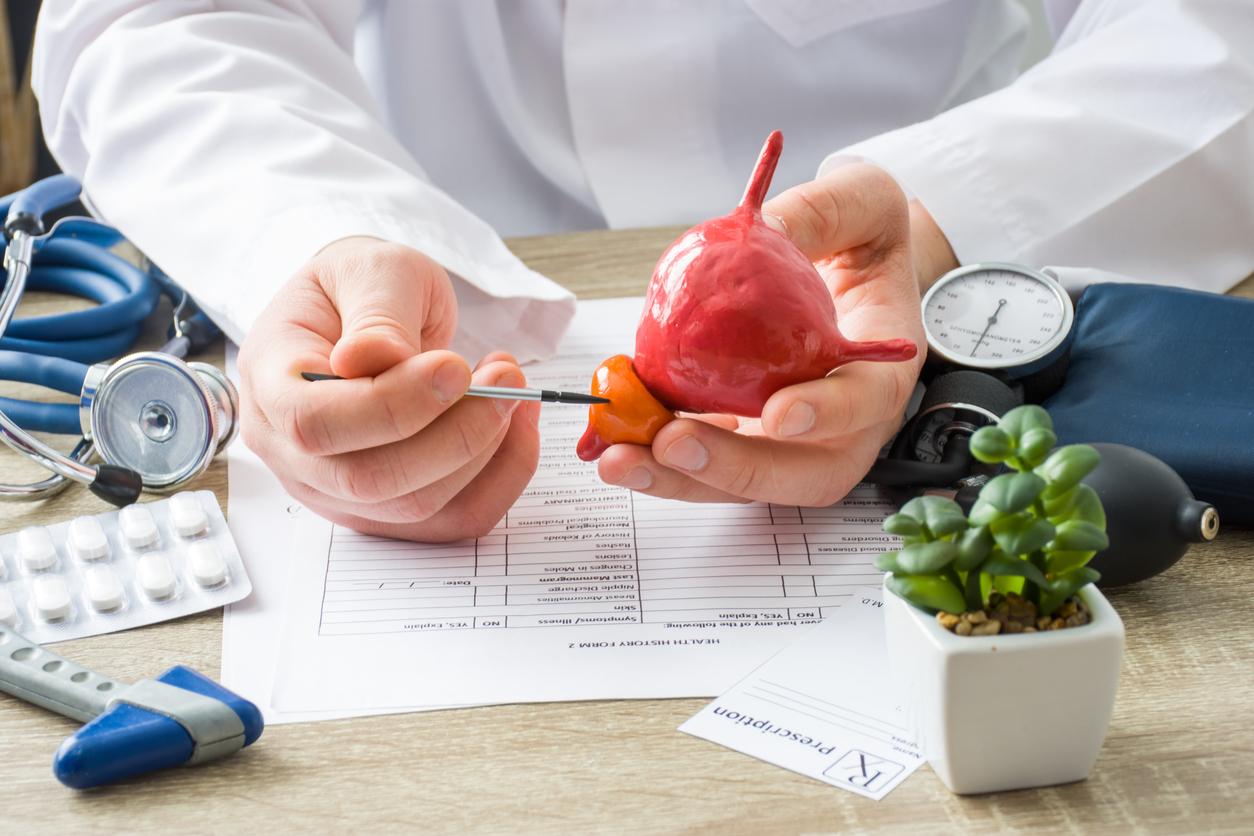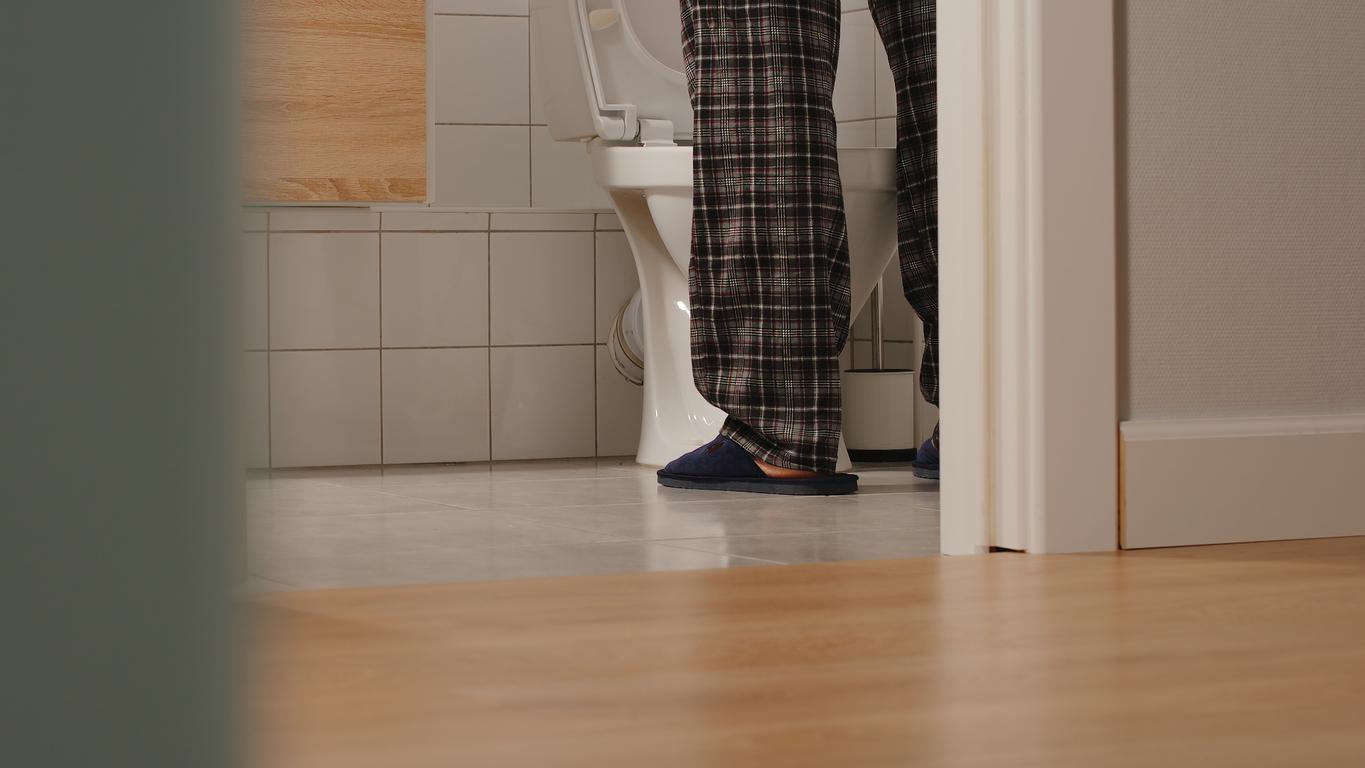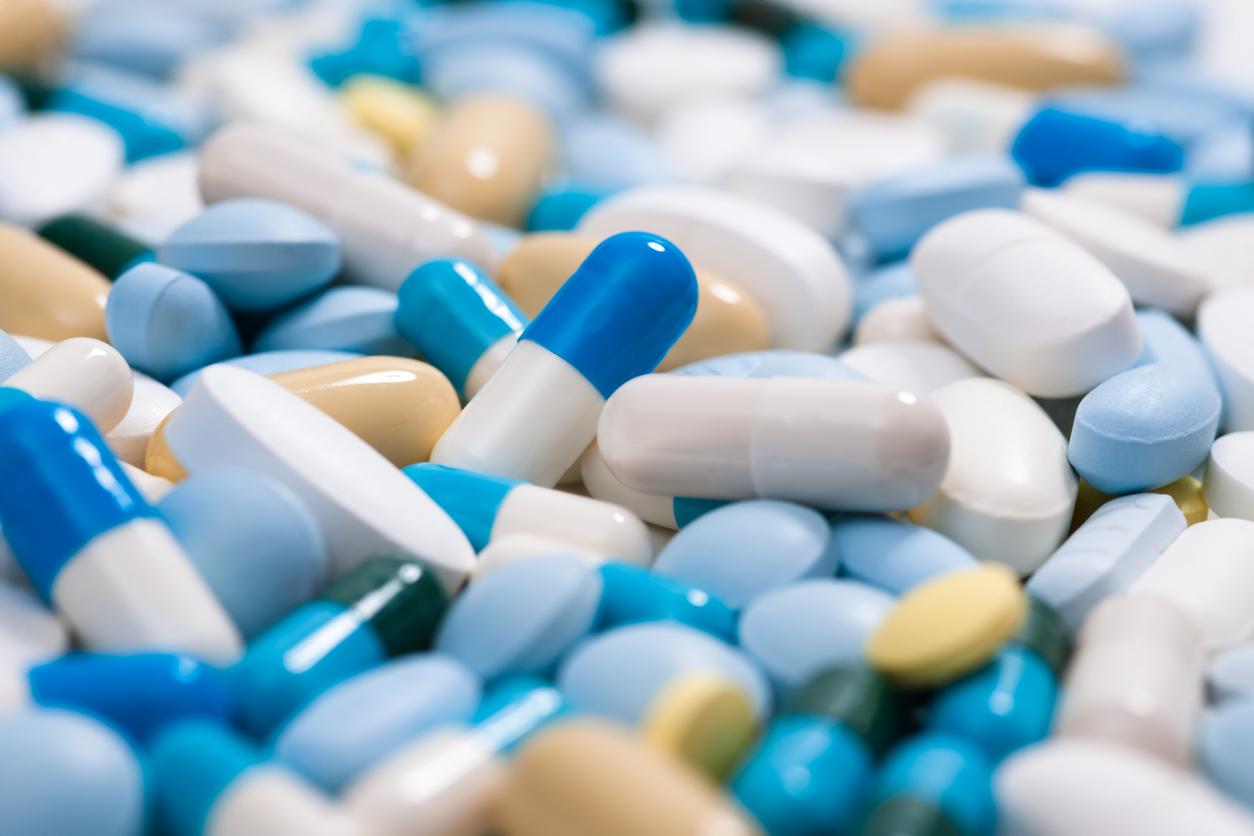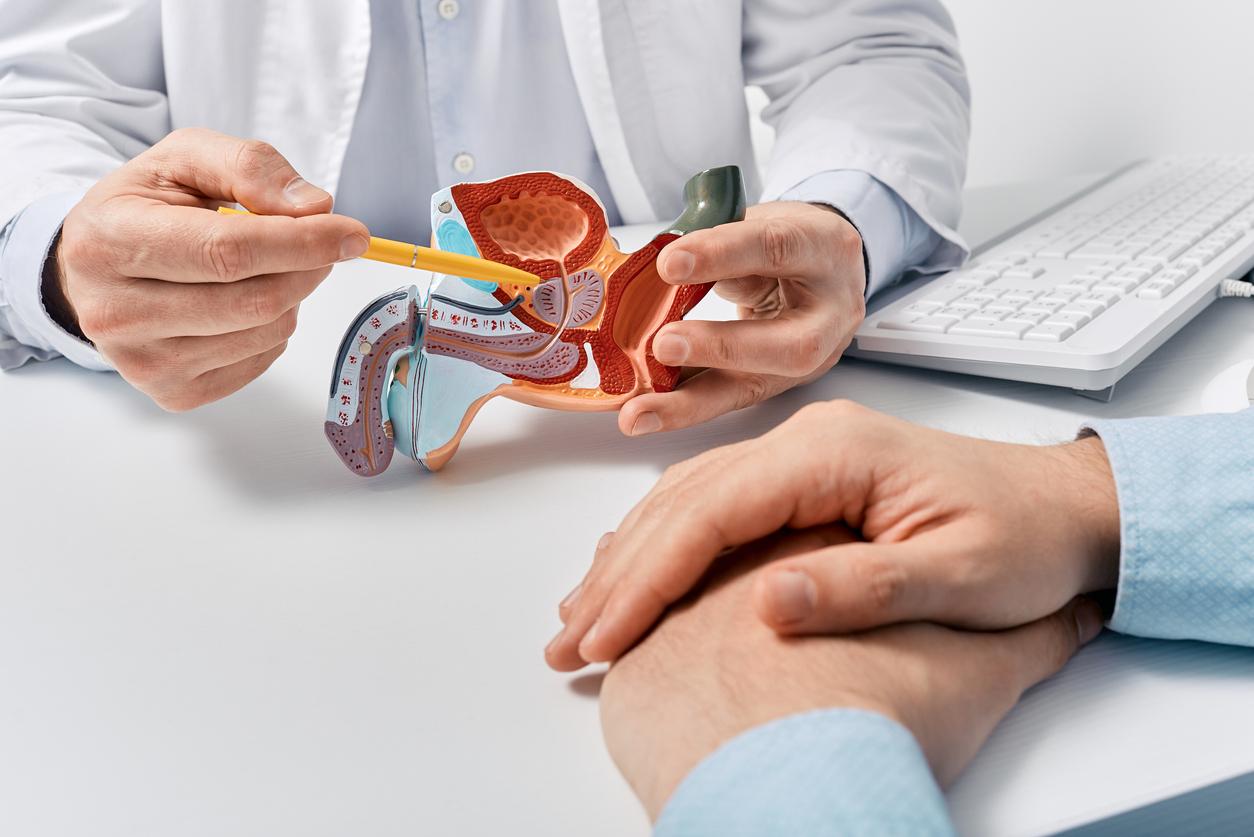Getting up several times a night or needing to go to the bathroom fifteen times a day … this is most often prostate who is talking about her! While it is natural to get up once or twice during the night to urinate, it is not normal to go to the bathroom all the time to just a few drops. In general, the aging of the prostate is responsible for this: over time, the gland tends to increase in size. It is the adenoma, also called “benign prostatic hypertrophy”.
Larger, the gland presses on the urethra (the duct that comes out of the bladder), which prevents the passage of urine. This is a bit like what happens when walking on a garden hose: the jet is interrupted or weaker and the pressure inside the duct increases … As the bladder has trouble emptying, other signs may appear: feeling, when leaving the toilet, that it is half full; need to “push” to pee; appearance of small drops “latecomers”; or again, but this is rarer, sensations of burn while urinating …
Is prevention of adenoma possible?
Not really. The prostate gets bigger over time. After 50 years, many men are concerned. But the increase in volume and the symptoms vary from person to person. The tobacco, excess weight, diabetes and lack of physical exercise increase the risks. Conversely, a power supply anti-inflammatory (turmeric, pumpkin seeds, fruits and vegetables rich in antioxidants …) would be beneficial.
Is it necessary to undergo treatment?
Of the 2 million men with urinary disorders half of them are on treatment because of their prostate. It all depends on the discomfort felt. “As long as I don’t get up twenty-five times a night, that doesn’t worry me too much”, says François, 55 years old.
Same reaction for Marcel, 74 years old: “” I was taking precautions, going to urinate before going to bed, getting up three times during the night. ” But one day there was blood in his urine.
“The prostate was pressing on the bladder. I had never taken any medication. I had to get on it and I’m sleeping better! But I know that someday it will have to be done.” Two types of drugs are prescribed: anti-inflammatory drugs with plant extracts or enzyme inhibitors; and alpha blockers, relaxing the bladder neck.
When is surgery offered?
When the drugs are no longer enough. Hervé, 65, has been followed for fifteen years. “When I was 55, I started to have problems. I was urinating more and more often. And one day, I couldn’t. At the hospital, I was told that I was having a urinating and that I needed to be probed urgently. My urologist prescribed an anti-inflammatory drug. Two hours later, I was able to urinate again. But I understood that I would not escape the operation . ” More than 65,000 interventions are carried out each year. They consist in removing the part of the prostate which compresses the urethra.
Complications are rare and the benefit long lasting. “It changes everything”, confirms Hervé. The only concern is that ejaculation is retrograde (the semen is emitted inwards) after the operation. But the pleasure is there. For patients on anticoagulant or at risk of bleeding, there are laser vaporization techniques.
What if you suddenly have a fever?
Rather, it is prostatitis (infection of the prostate), which affects 1% of men. It occurs in young men with an active sex life or in middle-aged men who already have adenoma. The symptoms are important: high fever associated with urinary signs (urination burns), pain in the lower abdomen, sometimes blood in the urine. One in four lower back pain are associated. “” I felt a little feverish, it looked like food poisoning … One evening at the theater, I had a fit of fever, with a terrible urge to pee. As if I had drunk 4 liters of tea, but after that I only managed to urinate three drops … “, explains Henri, 49 years old. Treatment of prostatitis involves antibiotics, to be taken for three weeks.
Can prostatitis become chronic?
Yes and, in this case, it manifests itself by pain in the groin, testicles and scrotum, urinary disorders, erection problems or ejaculation. They can also be misleading signs that complicate the diagnosis. This is what happened to Eric, whose chronic prostatitis “dragged on” for a year. In him, it did not cause urinary signs, but peaks of fever and episodes of tired very intense. After several consultations and numerous examinations (cardiac ultrasound, examination using a probe placed in the bladder …), the doctors finally discovered prostatitis. Once the diagnosis was made, the treatment resulted in a rapid recovery.
To remember
• There is no link between the adenoma of prostate and cancer.
• There is no relation between the size of the prostate and the discomfort felt.
• The intervention removes the signs of adenoma permanently: less than 10% relapse after 15-20 years.
Read also :
Prostate: the signs that should alert
Infographic: the 9 colors of your urine
4 things your urine could tell you about your health
















